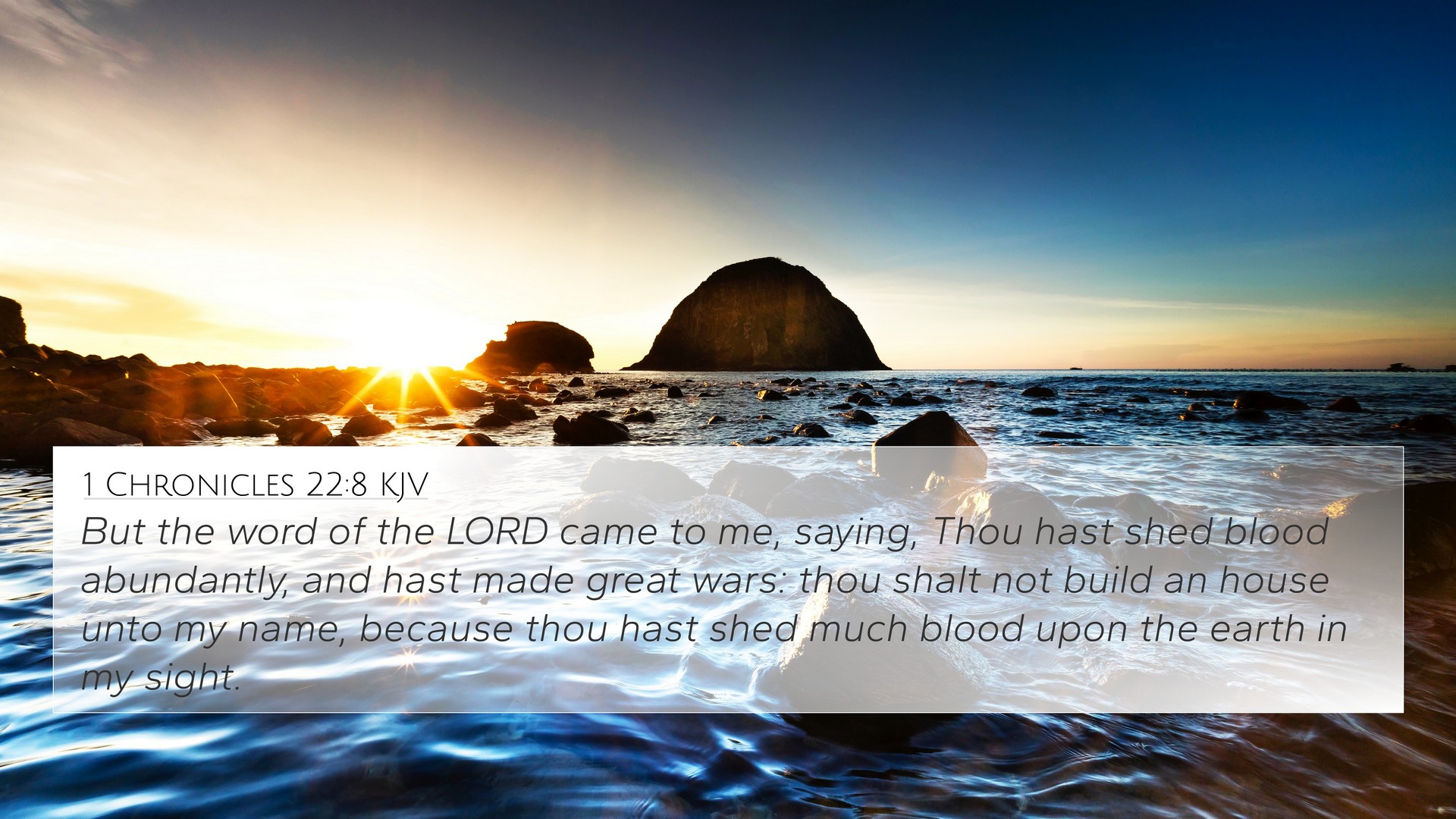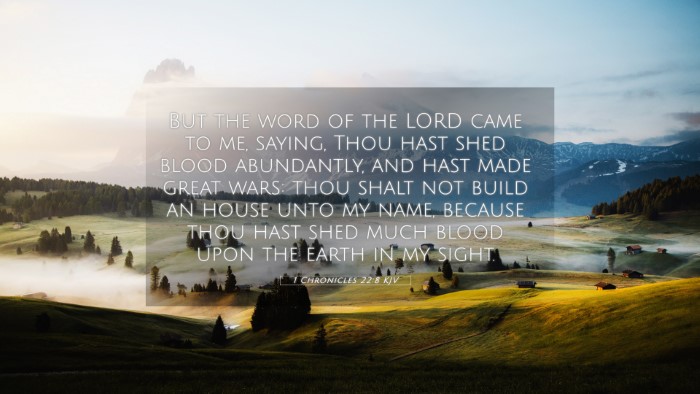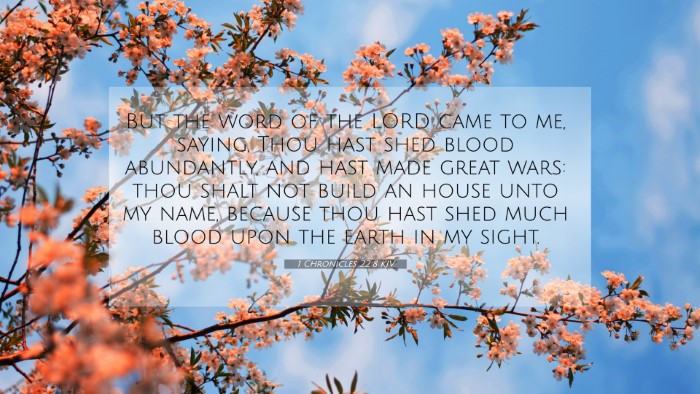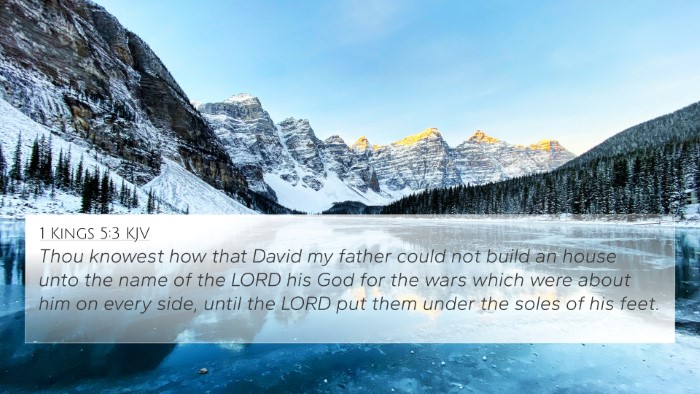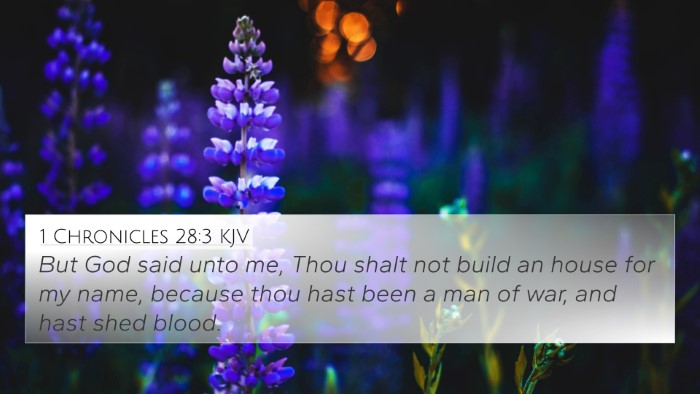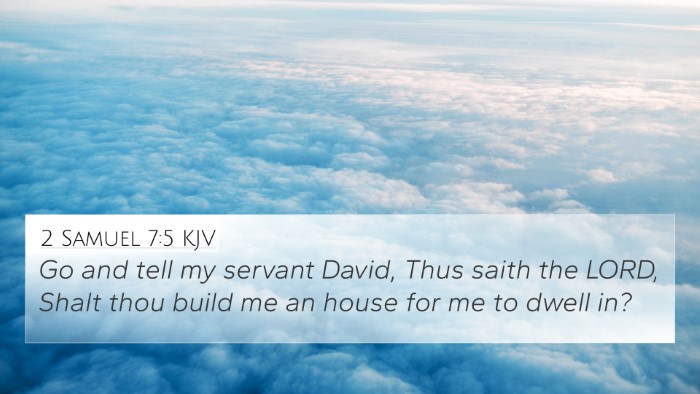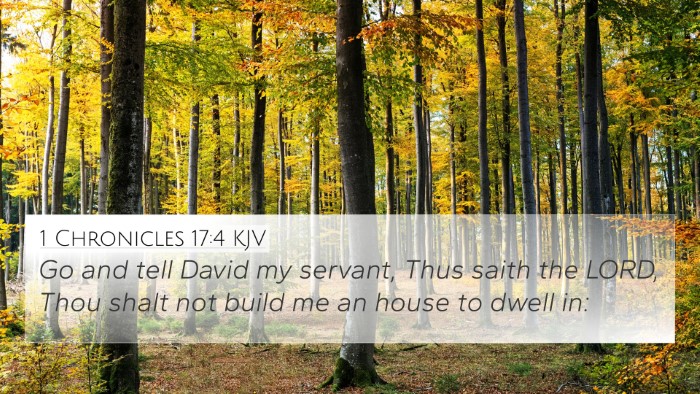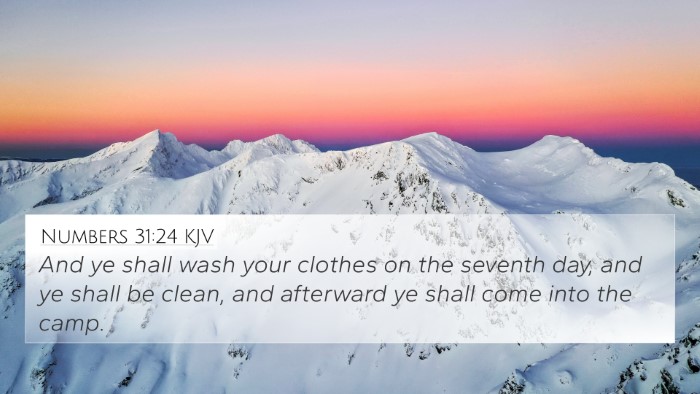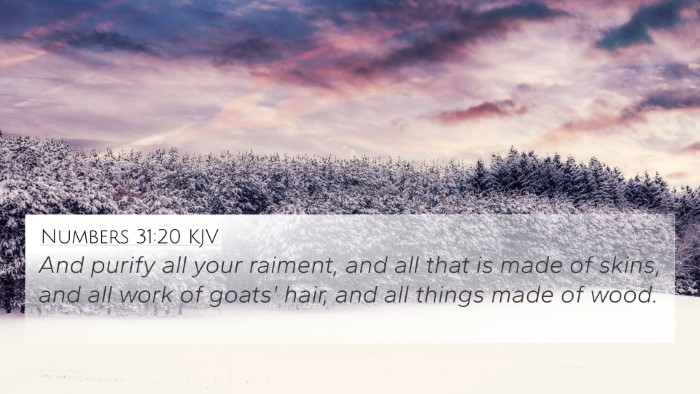Understanding 1 Chronicles 22:8
Verse: 1 Chronicles 22:8 - "But the word of the Lord came to me, saying, ‘You have shed much blood and have waged great wars; you shall not build a house to my name, because you have shed so much blood before me on the earth.’"
Summary of Interpretation
This verse addresses God's divine decision concerning David's desire to build the Temple. The Lord, through a prophetic message, reveals that David's past actions as a warrior, marked by bloodshed, disqualify him from constructing a sanctuary for God’s name. This moment serves as a profound theological reflection on the sanctity of God's dwelling and the character of its builder.
Insights from Public Domain Commentaries
Matthew Henry's Commentary
Matthew Henry emphasizes the significance of David’s heart to build the Temple, indicating that despite his noble intentions, his status as a warrior disallows him from this holy task. The commentary points out that God’s preference for purity and peace over bloodshed is crucial in understanding divine choices. Henry also notes that it highlights the contrast between David's earthly pursuits and God’s divine plans and standards for worship.
Albert Barnes' Commentary
Albert Barnes interprets the verse by linking it to David's military accomplishments and the implications of his warrior lifestyle on his spiritual calling. He reflects on how God's refusal to let David build the Temple illustrates divine wisdom in appointing Solomon, who would build a house of peace. Barnes suggests that this serves as a lesson on obedience and recognizing God's sovereignty in assigning roles within His plan.
Adam Clarke's Commentary
Adam Clarke focuses on the theological implications of bloodshed and its barrier to holy service. He comments on the nature of God's commands and the importance of being chosen to lead or build in God's kingdom. Clarke notes that while David's heart was in the right place, the consequence of his actions shaped the covenantal promises of God concerning the next generation and the future construction of the Temple.
Thematic Connections
-
1 Kings 5:3-5 - Solomon acknowledges that David was a man of war and therefore did not build the Temple.
-
2 Samuel 7:12-13 - God promises David that his son will build the Temple, emphasizing God's covenant with David.
-
Hebrews 8:5 - Reflection on the earthly sanctuary versus the heavenly reality, stressing God’s requirements for holiness in His dwelling.
-
Isaiah 53:5 - References the suffering servant, leading to associations with sacrifice and its context.
-
1 Chronicles 28:3 - Further confirmation of God’s decision regarding the Temple and the righteousness required for such a task.
-
Acts 7:47-50 - Stephen refers to the temple built by Solomon, linking it back to the original prophetic warnings about God’s dwelling.
-
Psalm 51:17 - Highlights God’s desire for a broken spirit and contrite heart over ritualistic offerings, reinforcing the character needed for service.
Conclusion
1 Chronicles 22:8 serves as a poignant reminder of the complexities of divine service and the need for holiness in leadership and worship. Through the lens of various commentaries, we see a multifaceted understanding of God’s will, David's intentions, and the implications for Solomon’s future role. This verse allows for rich exploration in thematic Bible verse connections, illustrating how the Old Testament and New Testament interweave in God's plan for His people.
Cross-Referencing and Study Tools
For anyone interested in diving deeper into the intricate connections between Bible verses, utilizing tools for Bible cross-referencing enhances understanding. Resources such as a Bible concordance or a Bible cross-reference guide provide further insights into the themes present in Biblical texts. These tools facilitate a cross-reference Bible study that enriches the learning experience and allows for an understanding of the cross-referenced themes in Scripture.
By examining the relationships between verses and the underlying messages, we gain a fuller comprehension of God’s intentions and the narrative of redemption throughout the Bible, revealing the inter-Biblical dialogue that exists in scripture.
